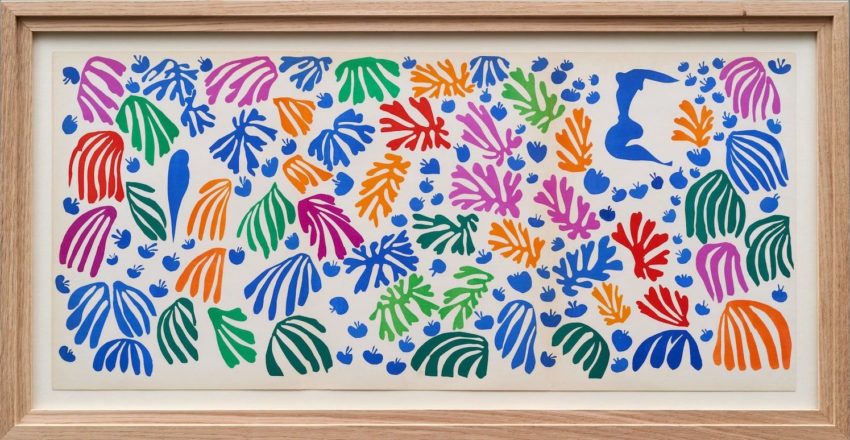
Art, Prints & Sculpture
Explore the full breadth of our decorative Works of Art. We have everything from numbered runs of prints and lithographs to original paintings and sketches. We specialise in London maps, including tube maps and plans of the City. Also lithographs by renowned Twentieth Century artists. You will find three dimensional sculpture in marble, bronze, plaster and more. Taxidermy and trophies are found alongside driftwood and weathervanes. Those in need of more functional pieces will discover shopkeepers and trade sign boards.
1419 items found
Page 9 of 15
-
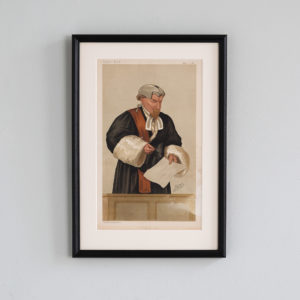
Stay, Please,
£190Stay, Please,
A framed chromolithograph picturing Mr Justice William Ventris Field, Baron Field of Wakenham. Queen's Council, later Queen's Bench, he oversaw the reorganisation of the court system following the Judicature Act of 1881 which established Judges Chambers in England and served (especially in the court of Chancery) to make trial without a jury the normal mode of trial, except in certain instances. In 1890, he retired from the bench and was raised to the peerage as Baron Field, of Wakenham in the County of Surrey, on 10 April 1890. He had been sworn of the Privy Council earlier the same year.£190 -
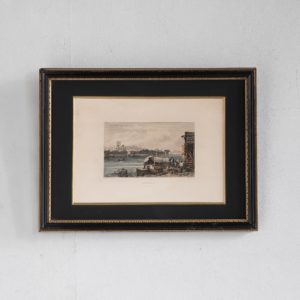
Westminster from Vauxhall
£190Westminster from Vauxhall
A hand-coloured engraving by George Cooke of a watercolour by Samuel Prout showing a view across the Thames from the Vauxhall shore towards Westminster Cathedral and the Palace of Westminster. Taken from Cooke's 'Views in London and its Vicinity'. In the immediate foreground we are presented with a scene outside a Lambeth boat-builders yard while barges and wherries crowd the river in the middle distance. On the Westminster shore we can see St John's Smith Square and beyond that the massy bulk of Westminster Abbey, later to sit in a somewhat diminished relation to Barry and Pugin's rebuilt Houses of Parliament of 1840-1876 Samuel Prout was a great favourite of John Ruskin who went as far as to comment in 1844, "Sometimes I tire of Turner, but never of Prout". Prout was noted for his paintings of great European cities and picturesque ruins and particularly for his ability to imbue his subjects with 'breadth and largeness'. George Cooke was leading English line-engraver of the 19th Century and commissioned eight of leading British landscape artists to create works, including this, for his 1826 collection of 'Views in London and its Vicinity'. This is a first edition of 1827. Interestingly the old Palace of Westminster, depicted here, would burn to the ground only seven years after this work was created.£190 -
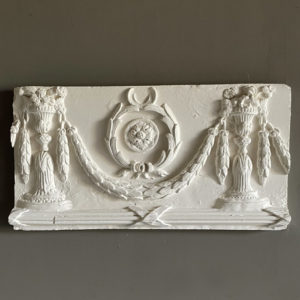
An English plaster section of frieze
£185An English plaster section of frieze
the frieze comprising fruit-filled campagna urns linked by a laurel swag with a foliate wreath above and ribbon-tied reeds below,£185 -
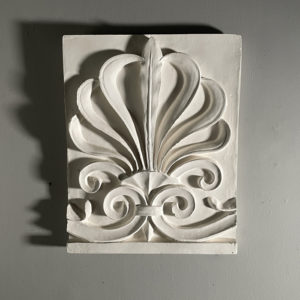
A plaster cast of an anthemion in relief
£185A plaster cast of an anthemion in relief
the rectangular plaque cast in relief with a striking anthemion motif£185 -
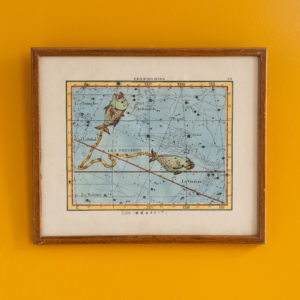
Horoscope Prints Based on the Work by John Flamsteed, Les Poissons,
£180 eachHoroscope Prints Based on the Work by John Flamsteed, Les Poissons,
John Flamsteed was born into a prosperous family but did not attend University due to poor health. Self taught, his extensive studies in astronomy resulted in his being appointed the first Astronomer Royal by King Charles II, with the Royal Observatory at Greenwich being built for him to continue his observations of the heavens. Flamsteed was the first astronomer to sight Uranus in 1690, naming it 34 Tauri, as he believed it to be a star. His Celestial Atlas was published ten years posthumously by his wife. It set the standard in professional astronomy for almost a century, with the positions of over 3,000 stars given more accurately than ever before.£180 each -
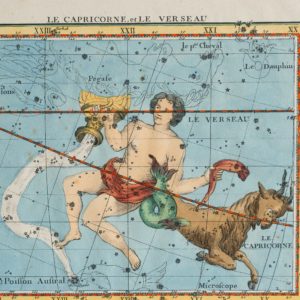
Horoscope Prints Based on the Work by John Flamsteed, Le Capricorne, et Le Verseau,
£180 eachHoroscope Prints Based on the Work by John Flamsteed, Le Capricorne, et Le Verseau,
John Flamsteed was born into a prosperous family but did not attend University due to poor health. Self taught, his extensive studies in astronomy resulted in his being appointed the first Astronomer Royal by King Charles II, with the Royal Observatory at Greenwich being built for him to continue his observations of the heavens. Flamsteed was the first astronomer to sight Uranus in 1690, naming it 34 Tauri, as he believed it to be a star. His Celestial Atlas was published ten years posthumously by his wife. It set the standard in professional astronomy for almost a century, with the positions of over 3,000 stars given more accurately than ever before.£180 each -
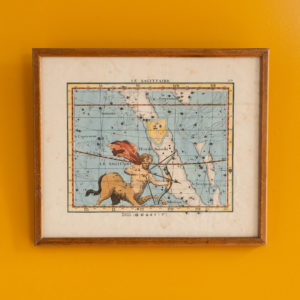
Horoscope Prints Based on the Work by John Flamsteed, Le Sagittaire,
£180 eachHoroscope Prints Based on the Work by John Flamsteed, Le Sagittaire,
John Flamsteed was born into a prosperous family but did not attend University due to poor health. Self taught, his extensive studies in astronomy resulted in his being appointed the first Astronomer Royal by King Charles II, with the Royal Observatory at Greenwich being built for him to continue his observations of the heavens. Flamsteed was the first astronomer to sight Uranus in 1690, naming it 34 Tauri, as he believed it to be a star. His Celestial Atlas was published ten years posthumously by his wife. It set the standard in professional astronomy for almost a century, with the positions of over 3,000 stars given more accurately than ever before.£180 each -
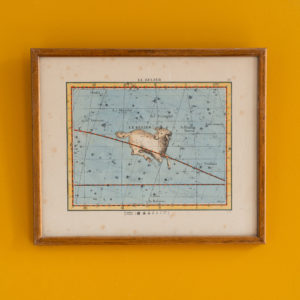
Horoscope Prints Based on the Work by John Flamsteed, Le Belier,
£180 eachHoroscope Prints Based on the Work by John Flamsteed, Le Belier,
John Flamsteed was born into a prosperous family but did not attend University due to poor health. Self taught, his extensive studies in astronomy resulted in his being appointed the first Astronomer Royal by King Charles II, with the Royal Observatory at Greenwich being built for him to continue his observations of the heavens. Flamsteed was the first astronomer to sight Uranus in 1690, naming it 34 Tauri, as he believed it to be a star. His Celestial Atlas was published ten years posthumously by his wife. It set the standard in professional astronomy for almost a century, with the positions of over 3,000 stars given more accurately than ever before.£180 each -
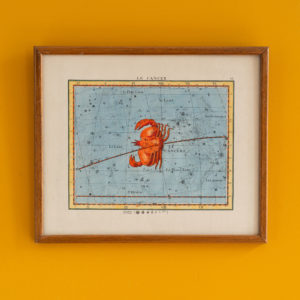
Horoscope Prints Based on the Work by John Flamsteed, Le Cancer
£180 eachHoroscope Prints Based on the Work by John Flamsteed, Le Cancer
John Flamsteed was born into a prosperous family but did not attend University due to poor health. Self taught, his extensive studies in astronomy resulted in his being appointed the first Astronomer Royal by King Charles II, with the Royal Observatory at Greenwich being built for him to continue his observations of the heavens. Flamsteed was the first astronomer to sight Uranus in 1690, naming it 34 Tauri, as he believed it to be a star. His Celestial Atlas was published ten years posthumously by his wife. It set the standard in professional astronomy for almost a century, with the positions of over 3,000 stars given more accurately than ever before.£180 each -
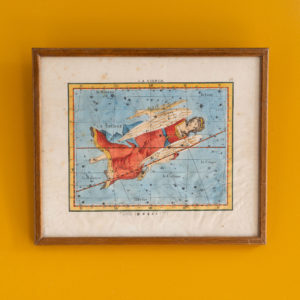
Horoscope Prints Based on the Work by John Flamsteed, La Vierge,
£180 eachHoroscope Prints Based on the Work by John Flamsteed, La Vierge,
John Flamsteed was born into a prosperous family but did not attend University due to poor health. Self taught, his extensive studies in astronomy resulted in his being appointed the first Astronomer Royal by King Charles II, with the Royal Observatory at Greenwich being built for him to continue his observations of the heavens. Flamsteed was the first astronomer to sight Uranus in 1690, naming it 34 Tauri, as he believed it to be a star. His Celestial Atlas was published ten years posthumously by his wife. It set the standard in professional astronomy for almost a century, with the positions of over 3,000 stars given more accurately than ever before.£180 each -
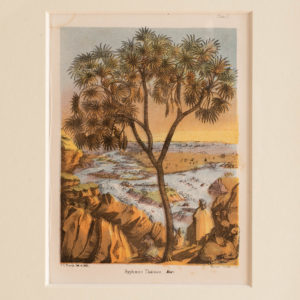
Popular History of the Palms and their Allies – Hyphaene Thebaica
£180 eachPopular History of the Palms and their Allies – Hyphaene Thebaica
Based on the work of Berthold Seemann ,was a botanist who made his name when he was appointed naturalist (on the recommendation of W J Hooker) to HMS Herald for the Kellett voyage of exploration to the American West Coast and Pacific.£180 each -
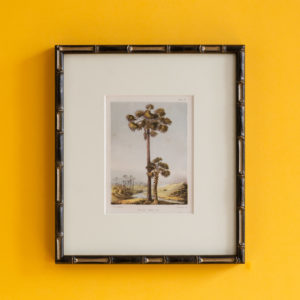
Popular History of the Palms and their Allies – Mauritia vinifera
£180 eachPopular History of the Palms and their Allies – Mauritia vinifera
Based on the work of Berthold Seemann ,was a botanist who made his name when he was appointed naturalist (on the recommendation of W J Hooker) to HMS Herald for the Kellett voyage of exploration to the American West Coast and Pacific.£180 each -
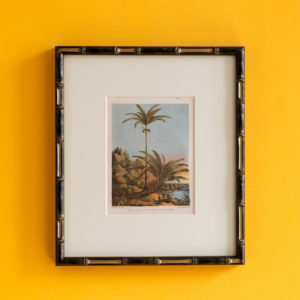
Popular History of the Palms and their Allies – Elaeis melanococca & Iriartea exorrhiza
£180 eachPopular History of the Palms and their Allies – Elaeis melanococca & Iriartea exorrhiza
Based on the work of Berthold Seemann ,was a botanist who made his name when he was appointed naturalist (on the recommendation of W J Hooker) to HMS Herald for the Kellett voyage of exploration to the American West Coast and Pacific.£180 each -
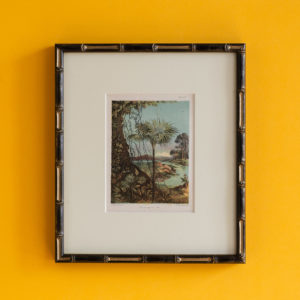
Popular History of the Palms and their Allies – Thrinax argentea
£180 eachPopular History of the Palms and their Allies – Thrinax argentea
Based on the work of Berthold Seemann ,was a botanist who made his name when he was appointed naturalist (on the recommendation of W J Hooker) to HMS Herald for the Kellett voyage of exploration to the American West Coast and Pacific.£180 each -
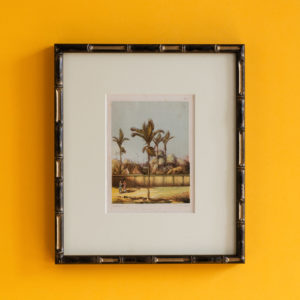
Popular History of the Palms and their Allies – Areca catechu
£180 eachPopular History of the Palms and their Allies – Areca catechu
Based on the work of Berthold Seemann ,was a botanist who made his name when he was appointed naturalist (on the recommendation of W J Hooker) to HMS Herald for the Kellett voyage of exploration to the American West Coast and Pacific.£180 each -
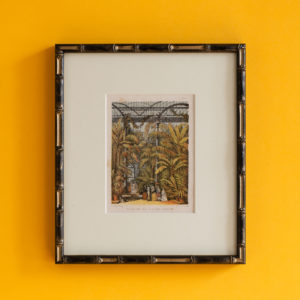
Popular History of the Palms and their Allies – The Great Palm House at Royal Gardens, Kew,
£180 eachPopular History of the Palms and their Allies – The Great Palm House at Royal Gardens, Kew,
Based on the work of Berthold Seemann ,was a botanist who made his name when he was appointed naturalist (on the recommendation of W J Hooker) to HMS Herald for the Kellett voyage of exploration to the American West Coast and Pacific.£180 each -
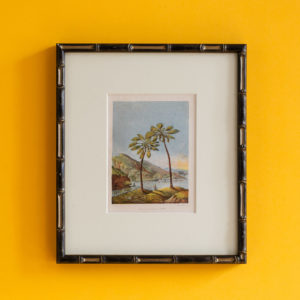
Popular History of the Palms and their Allies – Lodoicea sechellarum
£180 eachPopular History of the Palms and their Allies – Lodoicea sechellarum
Based on the work of Berthold Seemann ,was a botanist who made his name when he was appointed naturalist (on the recommendation of W J Hooker) to HMS Herald for the Kellett voyage of exploration to the American West Coast and Pacific.£180 each -
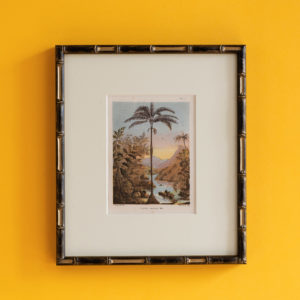
Popular History of the Palms and their Allies – Iriartea ventricosa
£180 eachPopular History of the Palms and their Allies – Iriartea ventricosa
Based on the work of Berthold Seemann ,was a botanist who made his name when he was appointed naturalist (on the recommendation of W J Hooker) to HMS Herald for the Kellett voyage of exploration to the American West Coast and Pacific.£180 each -
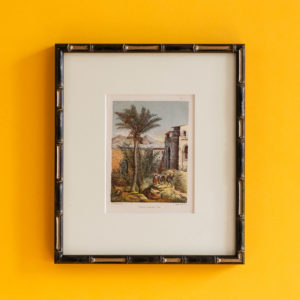
Popular History of the Palms and their Allies – Phoenix dactylifera
£180 eachPopular History of the Palms and their Allies – Phoenix dactylifera
Based on the work of Berthold Seemann ,was a botanist who made his name when he was appointed naturalist (on the recommendation of W J Hooker) to HMS Herald for the Kellett voyage of exploration to the American West Coast and Pacific.£180 each -

Popular History of the Palms and their Allies – Acrocomia Mexicana & Chamaedorea Schiedeana
£180 eachPopular History of the Palms and their Allies – Acrocomia Mexicana & Chamaedorea Schiedeana
Based on the work of Berthold Seemann ,was a botanist who made his name when he was appointed naturalist (on the recommendation of W J Hooker) to HMS Herald for the Kellett voyage of exploration to the American West Coast and Pacific.£180 each -
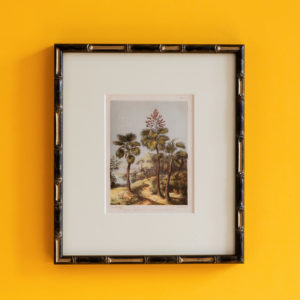
Popular History of the Palms and their Allies – Borassus flabelliformis & Corypha umbraculifera
£180 eachPopular History of the Palms and their Allies – Borassus flabelliformis & Corypha umbraculifera
Based on the work of Berthold Seemann ,was a botanist who made his name when he was appointed naturalist (on the recommendation of W J Hooker) to HMS Herald for the Kellett voyage of exploration to the American West Coast and Pacific.£180 each -
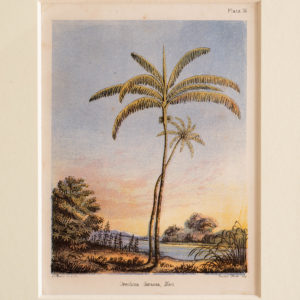
Popular History of the Palms and their Allies – Oreodoxa oleracea
£180 eachPopular History of the Palms and their Allies – Oreodoxa oleracea
Based on the work of Berthold Seemann ,was a botanist who made his name when he was appointed naturalist (on the recommendation of W J Hooker) to HMS Herald for the Kellett voyage of exploration to the American West Coast and Pacific.£180 each -
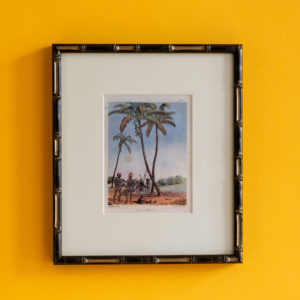
Popular History of the Palms and their Allies – Cocos nucifera
£180 eachPopular History of the Palms and their Allies – Cocos nucifera
Based on the work of Berthold Seemann ,was a botanist who made his name when he was appointed naturalist (on the recommendation of W J Hooker) to HMS Herald for the Kellett voyage of exploration to the American West Coast and Pacific.£180 each -
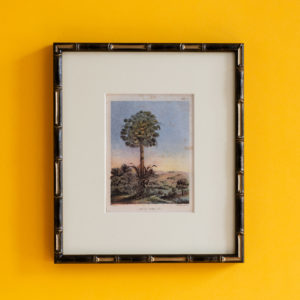
Popular History of the Palms and their Allies – Copernicia cerifera
£180 eachPopular History of the Palms and their Allies – Copernicia cerifera
Based on the work of Berthold Seemann ,was a botanist who made his name when he was appointed naturalist (on the recommendation of W J Hooker) to HMS Herald for the Kellett voyage of exploration to the American West Coast and Pacific.£180 each -
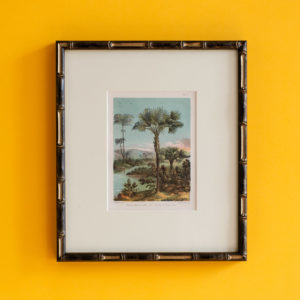
Popular History of the Palms and their Allies – Oreodoxa oleracea & Thrinax multiflora
£180 eachPopular History of the Palms and their Allies – Oreodoxa oleracea & Thrinax multiflora
Based on the work of Berthold Seemann ,was a botanist who made his name when he was appointed naturalist (on the recommendation of W J Hooker) to HMS Herald for the Kellett voyage of exploration to the American West Coast and Pacific.£180 each -
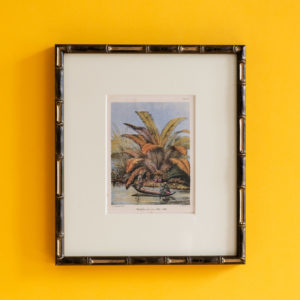
Popular History of the Palms and their Allies – Phytelephas macrocarpa
£180 eachPopular History of the Palms and their Allies – Phytelephas macrocarpa
Based on the work of Berthold Seemann ,was a botanist who made his name when he was appointed naturalist (on the recommendation of W J Hooker) to HMS Herald for the Kellett voyage of exploration to the American West Coast and Pacific.£180 each -
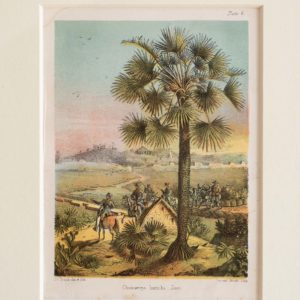
Popular History of the Palms and their Allies – Chamaerops humilis
£180 eachPopular History of the Palms and their Allies – Chamaerops humilis
Based on the work of Berthold Seemann ,was a botanist who made his name when he was appointed naturalist (on the recommendation of W J Hooker) to HMS Herald for the Kellett voyage of exploration to the American West Coast and Pacific.£180 each -
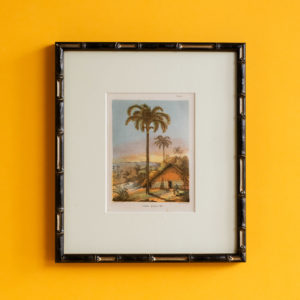
Popular History of the Palms and their Allies – Gulielma speciosa,
£180 eachPopular History of the Palms and their Allies – Gulielma speciosa,
Based on the work of Berthold Seemann ,was a botanist who made his name when he was appointed naturalist (on the recommendation of W J Hooker) to HMS Herald for the Kellett voyage of exploration to the American West Coast and Pacific.£180 each -
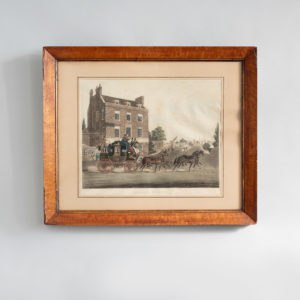
The Quicksilver
£180The Quicksilver
A Royal Mail coach, The Quicksilver, passes the Star and Garter at the Brentford end of Kew Bridge. The Quicksilver was the London to Falmouth Royal Mail Coach and operated in the years between 1835 and 1859. In 1837 it became the fastest long-distance mail coach in England with an average speed of 10.25 miles an hour with the London to Falmouth journey being accomplished in 16 hours and 34 minutes. The Star and Garter was a venerable old Coaching Inn positioned on the Middlesex shore of the Thames by Kew Bridge. It closed in 1983. Mounted and framed in an angled maple frame.£180 -
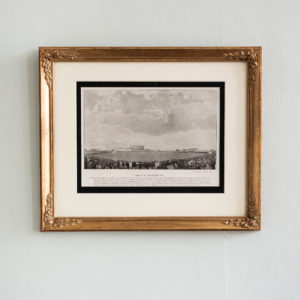
Cricket at Kennington Oval
£180Cricket at Kennington Oval
Engraved by Henry Winkles from the original study by William Tombleson. Originally published in the part-work series “Tombleson’s Views of the Thames and Medway” (London : 1833-1834).£180 -
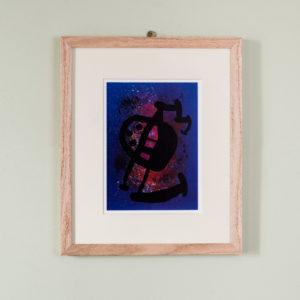
Joan Miró, lithographs
£180Joan Miró, lithographs
In 1967, printer Robert Dutrou introduced Joan Miró to a new printmaking technique: Silicon carbide engraving. More commonly known as carborundum, this technique became the artist’s final technical development in his graphic work.£180 -
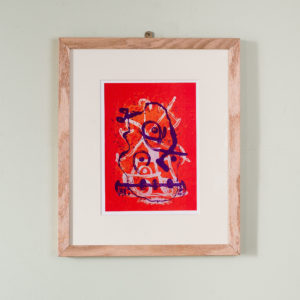
Joan Miró, lithographs
£180Joan Miró, lithographs
In 1967, printer Robert Dutrou introduced Joan Miró to a new printmaking technique: Silicon carbide engraving. More commonly known as carborundum, this technique became the artist’s final technical development in his graphic work.£180 -
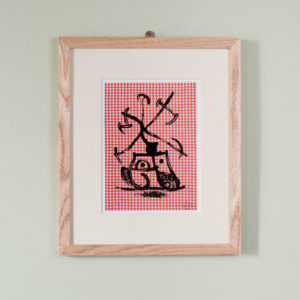
Joan Miró, lithographs
£180Joan Miró, lithographs
In 1967, printer Robert Dutrou introduced Joan Miró to a new printmaking technique: Silicon carbide engraving. More commonly known as carborundum, this technique became the artist’s final technical development in his graphic work.£180 -
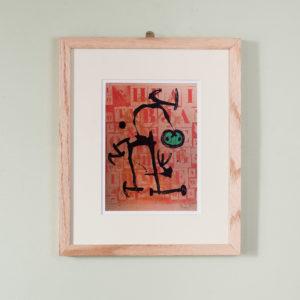
Joan Miró, lithographs
£180Joan Miró, lithographs
In 1967, printer Robert Dutrou introduced Joan Miró to a new printmaking technique: Silicon carbide engraving. More commonly known as carborundum, this technique became the artist’s final technical development in his graphic work.£180 -
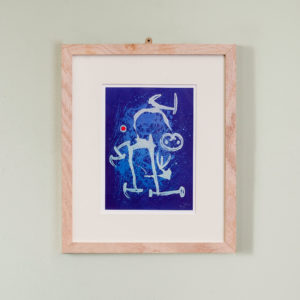
Joan Miró, lithographs
£180Joan Miró, lithographs
In 1967, printer Robert Dutrou introduced Joan Miró to a new printmaking technique: Silicon carbide engraving. More commonly known as carborundum, this technique became the artist’s final technical development in his graphic work.£180 -
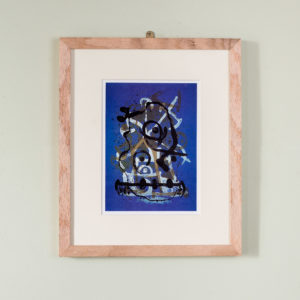
Joan Miró, lithographs
£180Joan Miró, lithographs
In 1967, printer Robert Dutrou introduced Joan Miró to a new printmaking technique: Silicon carbide engraving. More commonly known as carborundum, this technique became the artist’s final technical development in his graphic work.£180 -
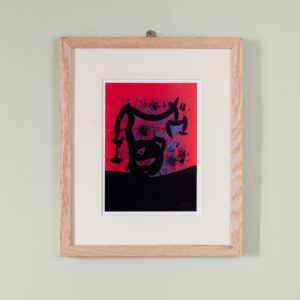
Joan Miró, lithographs
£180Joan Miró, lithographs
In 1967, printer Robert Dutrou introduced Joan Miró to a new printmaking technique: Silicon carbide engraving. More commonly known as carborundum, this technique became the artist’s final technical development in his graphic work.£180 -
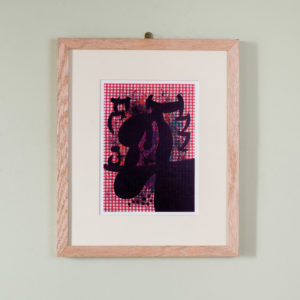
Joan Miró, lithographs
£180Joan Miró, lithographs
In 1967, printer Robert Dutrou introduced Joan Miró to a new printmaking technique: Silicon carbide engraving. More commonly known as carborundum, this technique became the artist’s final technical development in his graphic work.£180 -
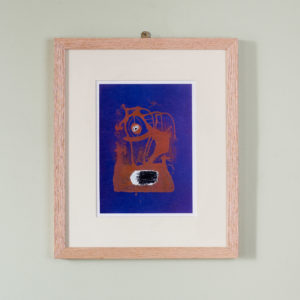
Joan Miró, lithographs
£180Joan Miró, lithographs
In 1967, printer Robert Dutrou introduced Joan Miró to a new printmaking technique: Silicon carbide engraving. More commonly known as carborundum, this technique became the artist’s final technical development in his graphic work.£180 -
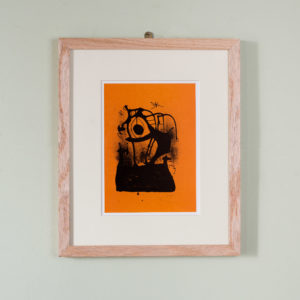
Joan Miró, lithographs
£180Joan Miró, lithographs
In 1967, printer Robert Dutrou introduced Joan Miró to a new printmaking technique: Silicon carbide engraving. More commonly known as carborundum, this technique became the artist’s final technical development in his graphic work.£180 -
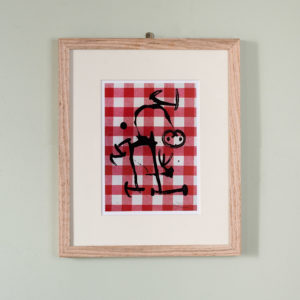
Joan Miró, lithographs
£180Joan Miró, lithographs
In 1967, printer Robert Dutrou introduced Joan Miró to a new printmaking technique: Silicon carbide engraving. More commonly known as carborundum, this technique became the artist’s final technical development in his graphic work.£180 -
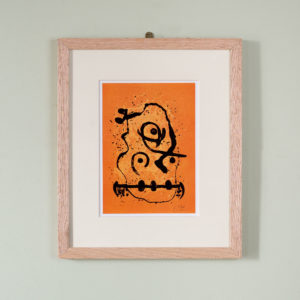
Joan Miró, lithographs
£180Joan Miró, lithographs
In 1967, printer Robert Dutrou introduced Joan Miró to a new printmaking technique: Silicon carbide engraving. More commonly known as carborundum, this technique became the artist’s final technical development in his graphic work.£180 -
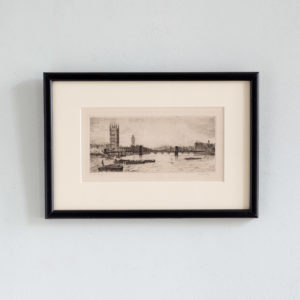
Lambeth Bridge, by J. H. Wiley
£180 -
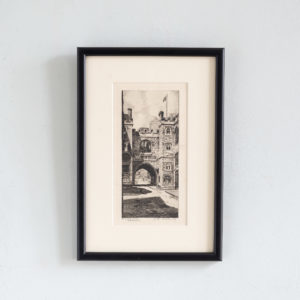
St John Gate, Clerkenwell, by J. H. Wiley
£180 -
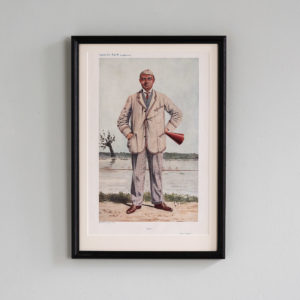
Bill,
£180Bill,
A framed chromolithograph by ELF picturing Robert Henry Foster, lawyer, author, poet, oarsmen and pioneering Romano-British archaeologist. His excavations at Roman Corbridge on Hadrian's Wall were seminal in the fledgling field of British archaeology. He wrote widely about Hadrian's Wall and the Roman presence in his native Northumberland. A keen oarsman, he rowed in the first boat of his college's Lady Margaret Boat Club and in the crew sent to Henley in 1888, winning both the Thames cup and Ladies plate. He later became joint secretary of the Thames Rowing Club in 1892. Starting out with a legal career in mind, he was called to the Bar in 1892, having been McMahon Law Student the year before. However, his writing soon took precedence, to be joined by his archaeological interests.£180 -
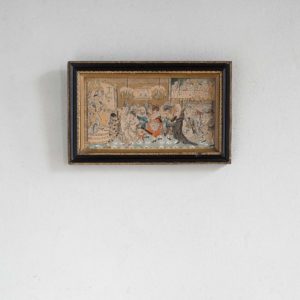
The Ball,
£180 -
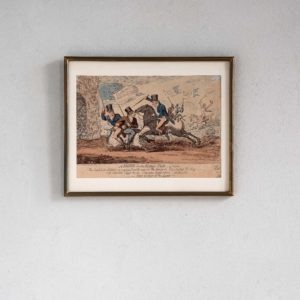
A Match for the King’s Plate,
£180A Match for the King’s Plate,
A hand coloured etching by George Cruikshank commenting on the contest for seat of Westminster. George Lamb and John Cam Hobhouse, 1st Baron Broughton are shown astride a lamb, Sir Francis Burdett, 5th Baronet, on a fine but injured charger and Henry 'Orator' Hunt straggles behind on an old carthorse representing the 'Father of Reform' Major John Cartwright. All five figures are shown racing for the winning post at the gate of His Majesty's Treasury with an implication that the contest is for one for both power and political patronage while the twin devils or radical reform and universal suffrage inadvertently 'steal a ride' on the Baronet's charger. The election of 1818 was the first to be staged after the end of the Napoleonic wars and was to become both a distillation of the latent class-conflicts bubbling over in the United Kingdom, and a fore-warning of the growth of militant radicalism that was to envenom and fracture British politics in the early parts of the 19th Century. Sir Francis Burdett was the Radical incumbent in Westminster and yet was firmly set against the new Radicalism which was beginning to colour the politics of the manufacturing districts of the North. This extreme and confident movement for universal manhood suffrage and political reform was by now associated with Henry Hunt, Major Cartwright and the writer and journalist William Cobbett. Caught in a cleft stick by his need both to mollify the prosperous and respectable Westminster electorate and yet maintain his own character as a tribune of the plebeians and Radical leader, Burdett was in a classic political double-bind. To the eye of the exiled Cobbett the Baronet was a placeman and an establishment 'traitor' but to his Tory opponents and the wavering freeholders and burgesses of Westminster he was beginning to appear a dangerous extremist. The suicide of Sir Samuel Romilly, the second member for Westminster, in November 1818 threw the situation wide open and the resulting by-election became something of a national sensation.£180 -
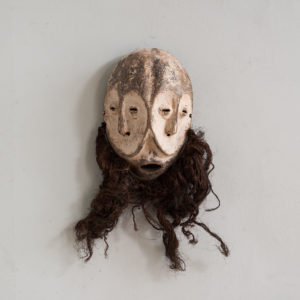
Lega Idimu mask (E)
£180Lega Idimu mask (E)
Similarly to the pipibudze masks of the Kwele tribe, the Lega’s Lukwakongo (miniature) masks have a heart-shaped face framed by a line formed by the nose, the eye rows and the planes of the cheeks. The wooden face is whitened and smoothed with kaolin clay, which is said to allude to the refined and perfected nature of the Bwami initiate, some of whom use the masks during initiation ceremonies. This mask would rarely be worn on the front of the face, but instead on the side of the face, the forehead, tied to the body, displayed on the fences, or dragged across the floor during Bwami meetings and ceremonies. The two faces share a mouth and a beard.£180 -
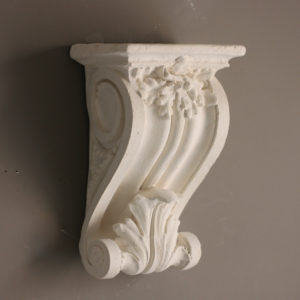
An English plaster corbel,
£180An English plaster corbel,
the scrolled bracket with a rectangular plinth top, the face embellished wth an acanthine clasp,£180 -
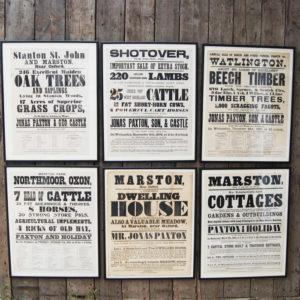
The Victorian auction bill posters of Jonas Paxton,
£180 eachThe Victorian auction bill posters of Jonas Paxton,
each of the advertisements printed on paper, advertising the location and prime lots at an upcoming auction,£180 each -
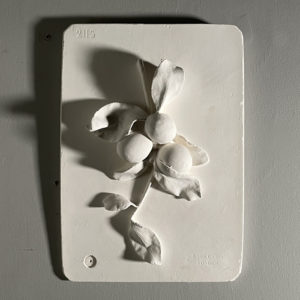
A cast plaster relief of clustered plums
£180A cast plaster relief of clustered plums
after an original cast by Brucciani and Co. and bearing their stamp,£180 -
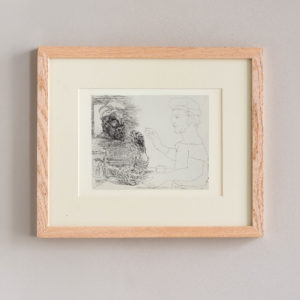
Picasso, Vollard Suite, 1956. c. May 1933.
£175 eachPicasso, Vollard Suite, 1956. c. May 1933.
Lithographs, published 1956 based on Picasso's work, produced from 1930-1937 for the art dealer Ambroise Vollard. Framed in plain oak with cream mounts. c. May 1933. Two Catalan Men£175 each -
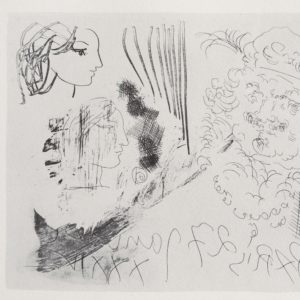
Picasso, Vollard Suite, 1956. Paris, January 27, 1934.
£175 eachPicasso, Vollard Suite, 1956. Paris, January 27, 1934.
Lithographs, published 1956 based on Picasso's work, produced from 1930-1937 for the art dealer Ambroise Vollard. Framed in plain oak with cream mounts. Paris, January 27, 1934. Head of Rembrandt and Heads of Three Girls£175 each -
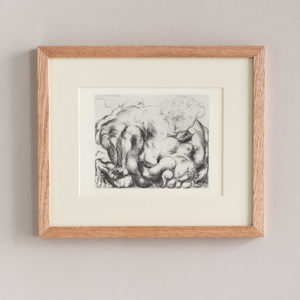
Picasso, Vollard Suite, 1956. Boisgeloup, April 23, 1933.
£175 eachPicasso, Vollard Suite, 1956. Boisgeloup, April 23, 1933.
Lithographs, published 1956 based on Picasso's work, produced from 1930-1937 for the art dealer Ambroise Vollard. Framed in plain oak with cream mounts. Boisgeloup, April 23, 1933. Embrace£175 each -
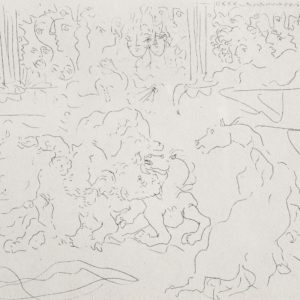
Picasso, Vollard Suite, 1956. Paris, November 7, 1933.
£175 eachPicasso, Vollard Suite, 1956. Paris, November 7, 1933.
Lithographs, published 1956 based on Picasso's work, produced from 1930-1937 for the art dealer Ambroise Vollard. Framed in plain oak with cream mounts. Paris, November 7, 1933. Bullfight I£175 each -
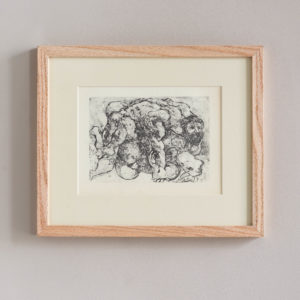
Picasso, Vollard Suite, 1956. Paris, November 2, 1933.
£175 eachPicasso, Vollard Suite, 1956. Paris, November 2, 1933.
Lithographs, published 1956 based on Picasso's work, produced from 1930-1937 for the art dealer Ambroise Vollard. Framed in plain oak with cream mounts. Paris, November 2, 1933. Embrace£175 each -
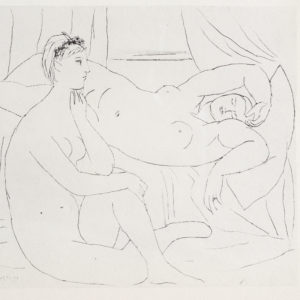
Picasso, Vollard Suite, 1956.
£175 eachPicasso, Vollard Suite, 1956.
Lithographs, published 1956 based on Picasso's work, produced from 1930-1937 for the art dealer Ambroise Vollard. Framed in plain oak with cream mounts. 1931. Two Nudes Resting.£175 each -
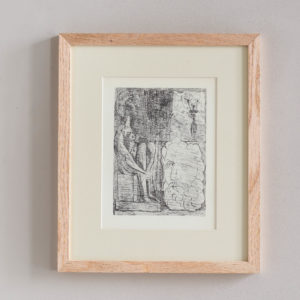
Picasso, Vollard Suite, 1956. Paris, May 5, 1933.
£175 eachPicasso, Vollard Suite, 1956. Paris, May 5, 1933.
Lithographs, published 1956 based on Picasso's work, produced from 1930-1937 for the art dealer Ambroise Vollard. Framed in plain oak with cream mounts. Paris, May 5, 1933. Sculpture of Seated Nude, Sculptured Head, and Vase of Flowers.£175 each -
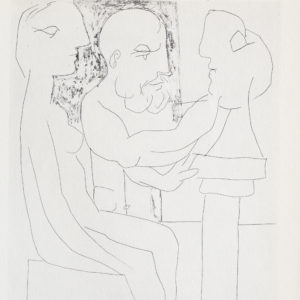
Picasso, Vollard Suite, 1956. Paris, March 25, 1933,
£175 eachPicasso, Vollard Suite, 1956. Paris, March 25, 1933,
Lithographs, published 1956 based on Picasso's work, produced from 1930-1937 for the art dealer Ambroise Vollard. Framed in plain oak with cream mounts. Paris, March 25, 1933. Sculptor Working from a Model.£175 each -
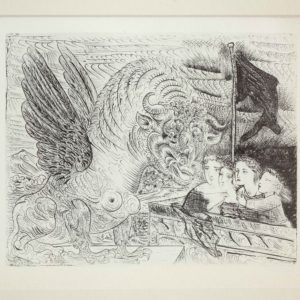
Picasso, Vollard Suite, 1956. c. May 1933.
£175 eachPicasso, Vollard Suite, 1956. c. May 1933.
Lithographs, published 1956 based on Picasso's work, produced from 1930-1937 for the art dealer Ambroise Vollard. Framed in plain oak with cream mounts. c. May 1933. Four Children Viewing a Monster.£175 each -
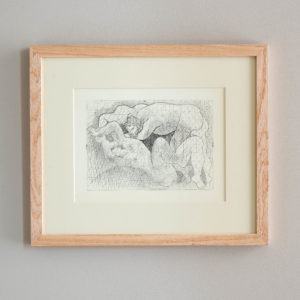
Picasso, Vollard Suite, 1956.
£175 eachPicasso, Vollard Suite, 1956.
Lithographs, published 1956 based on Picasso's work, produced from 1930-1937 for the art dealer Ambroise Vollard. Framed in plain oak with cream mounts. 1931. The Rape£175 each -
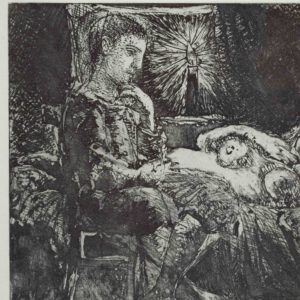
Picasso, Vollard Suite, 1956. c. 1935.
£175 eachPicasso, Vollard Suite, 1956. c. 1935.
Lithographs, published 1956 based on Picasso's work, produced from 1930-1937 for the art dealer Ambroise Vollard. Framed in plain oak with cream mounts. c. 1935. Boy Watching over Sleeping Woman by Candlelight.£175 each -
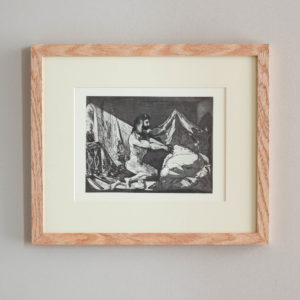
Picasso, Vollard Suite, 1956. June 12, 1936.
£175 eachPicasso, Vollard Suite, 1956. June 12, 1936.
Lithographs, published 1956 based on Picasso's work, produced from 1930-1937 for the art dealer Ambroise Vollard. Framed in plain oak with cream mounts. June 12, 1936. Satyr and Sleeping Woman.£175 each -
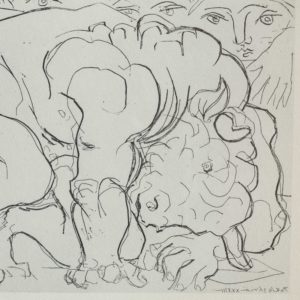
Picasso, Vollard Suite, 1956. Paris, May 26, 1933.
£175 eachPicasso, Vollard Suite, 1956. Paris, May 26, 1933.
Lithographs, published 1956 based on Picasso's work, produced from 1930-1937 for the art dealer Ambroise Vollard. Framed in plain oak with cream mounts. Paris, May 26, 1933. Dying Minotaur.£175 each -
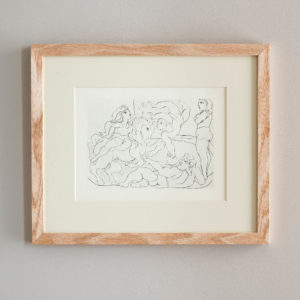
Picasso, Vollard Suite, 1956. Paris, November 11, 1933.
£175 eachPicasso, Vollard Suite, 1956. Paris, November 11, 1933.
Lithographs, published 1956 based on Picasso's work, produced from 1930-1937 for the art dealer Ambroise Vollard. Framed in plain oak with cream mounts. Paris, November 11, 1933. Acrobats with a Horse.£175 each -
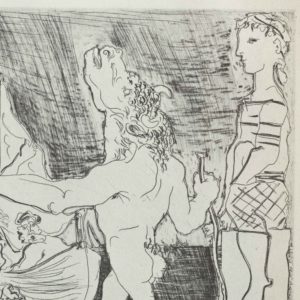
Picasso, Vollard Suite, 1956. Paris, October 23, 1934.
£175 eachPicasso, Vollard Suite, 1956. Paris, October 23, 1934.
Lithographs, published 1956 based on Picasso's work, produced from 1930-1937 for the art dealer Ambroise Vollard. Framed in plain oak with cream mounts. Paris, October 23, 1934. Blind Minotaur Led through the Night by Girl with Dove.£175 each -
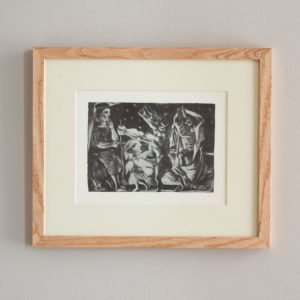
Picasso, Vollard Suite, 1956. c. 1935.
£175 eachPicasso, Vollard Suite, 1956. c. 1935.
Lithographs, published 1956 based on Picasso's work, produced from 1930-1937 for the art dealer Ambroise Vollard. Framed in plain oak with cream mounts. c, 1935. Blind Minotaur Led through the Night by Girl with Fluttering Dove.£175 each -
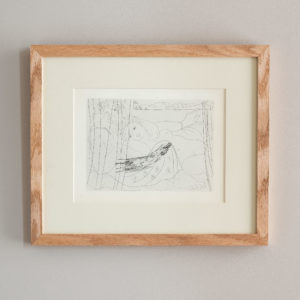
Picasso, Vollard Suite, 1956. Paris, June 16, 1933
£175 eachPicasso, Vollard Suite, 1956. Paris, June 16, 1933
Lithographs, published 1956 based on Picasso's work, produced from 1930-1937 for the art dealer Ambroise Vollard. Framed in plain oak with cream mounts. Paris, June 16, 1933. Minotaur with Girl in His Arms£175 each -
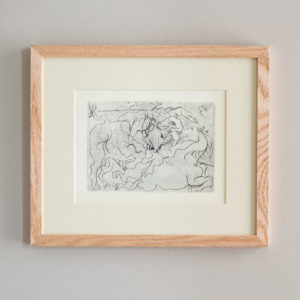
Picasso, Vollard Suite, 1956. Paris, November 8, 1933.
£175 eachPicasso, Vollard Suite, 1956. Paris, November 8, 1933.
Lithographs, published 1956 based on Picasso's work, produced from 1930-1937 for the art dealer Ambroise Vollard. Framed in plain oak with cream mounts. Paris, November 8, 1933. Bullfight II£175 each -
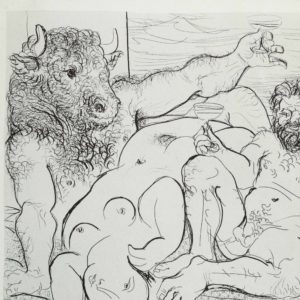
Picasso, Vollard Suite, 1956. Paris, May 18, 1933.
£175 eachPicasso, Vollard Suite, 1956. Paris, May 18, 1933.
Lithographs, published 1956 based on Picasso's work, produced from 1930-1937 for the art dealer Ambroise Vollard. Framed in plain oak with cream mounts. Paris, May 18, 1933. Drinking Minotaur and Sculptor with Two Models£175 each -
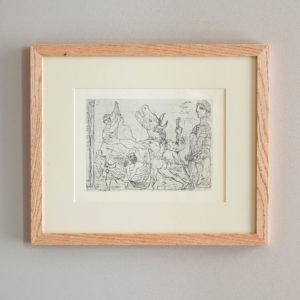
Picasso, Vollard Suite, 1956. c. October 1934.
£175 eachPicasso, Vollard Suite, 1956. c. October 1934.
Lithographs, published 1956 based on Picasso's work, produced from 1930-1937 for the art dealer Ambroise Vollard. Framed in plain oak with cream mounts. c. October 1934. Blind Minotaur Led by Girl with Fluttering Dove.£175 each -
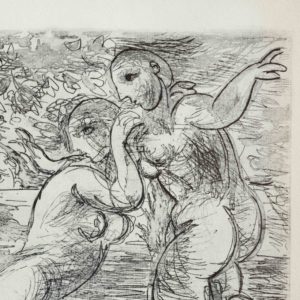
Picasso, Vollard Suite, 1956. Paris, May 22, 1933.
£175 eachPicasso, Vollard Suite, 1956. Paris, May 22, 1933.
Lithographs, published 1956 based on Picasso's work, produced from 1930-1937 for the art dealer Ambroise Vollard. Framed in plain oak with cream mounts. Paris, May 22, 1933. Two Nudes Bathing. At left, Sculptured Head and Head of Spectator.£175 each -
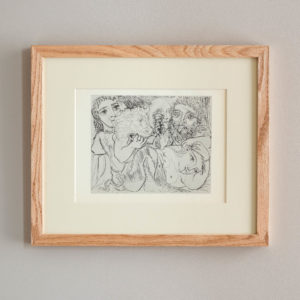
Picasso, Vollard Suite, 1956. Boisgeloup, June 18, 1933.
£175 eachPicasso, Vollard Suite, 1956. Boisgeloup, June 18, 1933.
Lithographs, published 1956 based on Picasso's work, produced from 1930-1937 for the art dealer Ambroise Vollard. Framed in plain oak with cream mounts. Boisgeloup, June 18, 1933. Minotaur, Drinking Sculptor, and Three Models.£175 each -
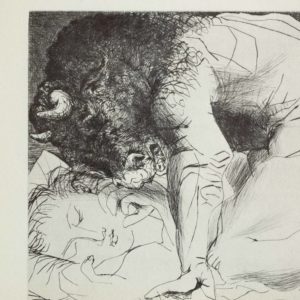
Picasso, Vollard Suite, 1956. Boisgeloup, June 18, 1933.
£175 eachPicasso, Vollard Suite, 1956. Boisgeloup, June 18, 1933.
Lithographs, published 1956 based on Picasso's work, produced from 1930-1937 for the art dealer Ambroise Vollard. Framed in plain oak with cream mounts. Boisgeloup, June 18, 1933. Minotaur over Sleeping Girl.£175 each -
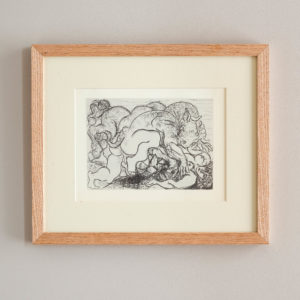
Picasso, Vollard Suite, 1956. Paris, May 23, 1933.
£175 eachPicasso, Vollard Suite, 1956. Paris, May 23, 1933.
Lithographs, published 1956 based on Picasso's work, produced from 1930-1937 for the art dealer Ambroise Vollard. Framed in plain oak with cream mounts. Paris, May 23, 1933. Minotaur Assaulting a Girl.£175 each -
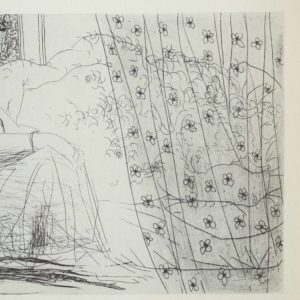
Picasso, Vollard Suite, 1956. Paris, May 18, 1933.
£175 eachPicasso, Vollard Suite, 1956. Paris, May 18, 1933.
Lithographs, published 1956 based on Picasso's work, produced from 1930-1937 for the art dealer Ambroise Vollard. Framed in plain oak with cream mounts. Paris, May 18, 1933. Girl Seated by Sleeping Minotaur.£175 each -
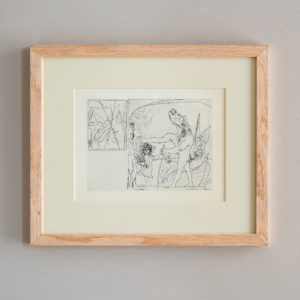
Picasso, Vollard Suite, 1956. Boisgeloup. September 22, 1934.
£175 eachPicasso, Vollard Suite, 1956. Boisgeloup. September 22, 1934.
Lithographs, published 1956 based on Picasso's work, produced from 1930-1937 for the art dealer Ambroise Vollard. Framed in plain oak with cream mounts. Boisegeloup. September 22, 1934. Blind Minotaur Led by Girl with Bouquet of Wild Flowers.£175 each -
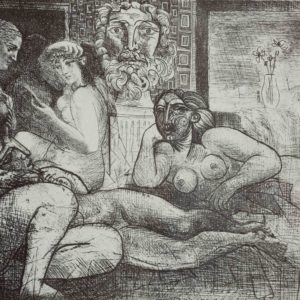
Picasso, Vollard Suite, 1956. Paris, March 10, 1934
£175 eachPicasso, Vollard Suite, 1956. Paris, March 10, 1934
Lithographs, published 1956 based on Picasso's work, produced from 1930-1937 for the art dealer Ambroise Vollard. Framed in plain oak with cream mounts. Paris, March 10, 1934. Four Models and a Sculptured Head.£175 each -
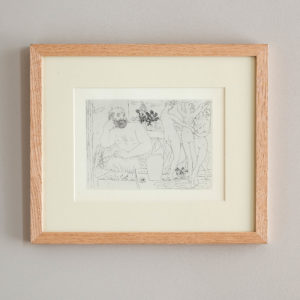
Picasso, Vollard Suite, 1956. Paris, March 2, 1934
£175 eachPicasso, Vollard Suite, 1956. Paris, March 2, 1934
Lithographs, published 1956 based on Picasso's work, produced from 1930-1937 for the art dealer Ambroise Vollard. Framed in plain oak with cream mounts. Paris, March 2, 1934. Sculptor and Statue of Three Female Dancers£175 each -
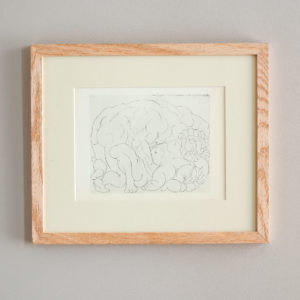
Picasso, Vollard Suite, 1956. Boisgeloup, April 22, 1933.
£175 eachPicasso, Vollard Suite, 1956. Boisgeloup, April 22, 1933.
Lithographs, published 1956 based on Picasso's work, produced from 1930-1937 for the art dealer Ambroise Vollard. Framed in plain oak with cream mounts. Boisegeloup, April 22, 1933. Embrace.£175 each -
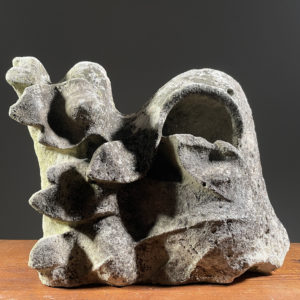
An English limestone church fragment
£175An English limestone church fragment
the foliate carving of leafy clasps, well weathered, flat to the underside,£175 -
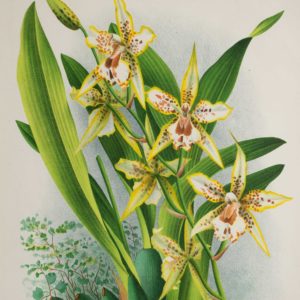
Linden Botanicals, Odontoglossum Duvivieranum,
£175 eachLinden Botanicals, Odontoglossum Duvivieranum,
L’Illustration Horticole, was a monthly horticultural review, founded in 1854 in Ghent, Belgium, by Ambroise Verschaffelt, a nurseryman who specialised in new plant introductions from South America. The lavish illustrations were produced by some of the very best botanical artists and lithographers – A. Goosens, P. De Pannemaeker and J. Goffart. The L’Illustration Horticole although founded by Jean Jules Linden (1817 – 1898) became a collaborative effort of many great horticulturists and field botanists of the day. Jean Linden in his own right was a renowned orchid grower and collector. Each monthly edition featured chromolithograph of botanical prints. Plants such as orchids, camellias, roses and leafy plants such as ferns and palm trees were represented. The magazine’s scope included pictures, descriptions, the history and culture of “the most remarkable plants,” new introductions, horticultural history, botanical expeditions, and accounts of the major expositions and of new works on botany and horticulture as well as garden descriptions and layouts.£175 each -
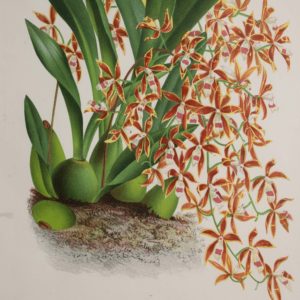
Linden Botanicals, Odontoglossum Constricutum,
£175 eachLinden Botanicals, Odontoglossum Constricutum,
L’Illustration Horticole, was a monthly horticultural review, founded in 1854 in Ghent, Belgium, by Ambroise Verschaffelt, a nurseryman who specialised in new plant introductions from South America. The lavish illustrations were produced by some of the very best botanical artists and lithographers – A. Goosens, P. De Pannemaeker and J. Goffart. The L’Illustration Horticole although founded by Jean Jules Linden (1817 – 1898) became a collaborative effort of many great horticulturists and field botanists of the day. Jean Linden in his own right was a renowned orchid grower and collector. Each monthly edition featured chromolithograph of botanical prints. Plants such as orchids, camellias, roses and leafy plants such as ferns and palm trees were represented. The magazine’s scope included pictures, descriptions, the history and culture of “the most remarkable plants,” new introductions, horticultural history, botanical expeditions, and accounts of the major expositions and of new works on botany and horticulture as well as garden descriptions and layouts.£175 each -
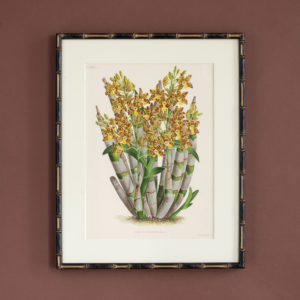
Linden Botanicals, Ansellia Congoensis,
£175 eachLinden Botanicals, Ansellia Congoensis,
L’Illustration Horticole, was a monthly horticultural review, founded in 1854 in Ghent, Belgium, by Ambroise Verschaffelt, a nurseryman who specialised in new plant introductions from South America. The lavish illustrations were produced by some of the very best botanical artists and lithographers – A. Goosens, P. De Pannemaeker and J. Goffart. The L’Illustration Horticole although founded by Jean Jules Linden (1817 – 1898) became a collaborative effort of many great horticulturists and field botanists of the day. Jean Linden in his own right was a renowned orchid grower and collector. Each monthly edition featured chromolithograph of botanical prints. Plants such as orchids, camellias, roses and leafy plants such as ferns and palm trees were represented. The magazine’s scope included pictures, descriptions, the history and culture of “the most remarkable plants,” new introductions, horticultural history, botanical expeditions, and accounts of the major expositions and of new works on botany and horticulture as well as garden descriptions and layouts.£175 each -
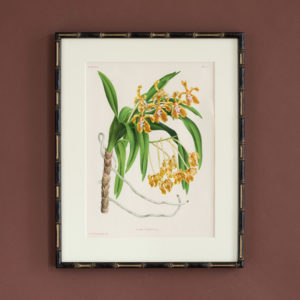
Linden Botanicals, Vanda Lindeni,
£175 eachLinden Botanicals, Vanda Lindeni,
L’Illustration Horticole, was a monthly horticultural review, founded in 1854 in Ghent, Belgium, by Ambroise Verschaffelt, a nurseryman who specialised in new plant introductions from South America. The lavish illustrations were produced by some of the very best botanical artists and lithographers – A. Goosens, P. De Pannemaeker and J. Goffart. The L’Illustration Horticole although founded by Jean Jules Linden (1817 – 1898) became a collaborative effort of many great horticulturists and field botanists of the day. Jean Linden in his own right was a renowned orchid grower and collector. Each monthly edition featured chromolithograph of botanical prints. Plants such as orchids, camellias, roses and leafy plants such as ferns and palm trees were represented. The magazine’s scope included pictures, descriptions, the history and culture of “the most remarkable plants,” new introductions, horticultural history, botanical expeditions, and accounts of the major expositions and of new works on botany and horticulture as well as garden descriptions and layouts.£175 each -
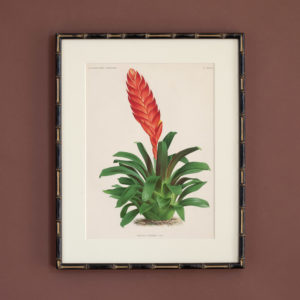
Linden Botanicals, Vriesea Fulgida,
£175 eachLinden Botanicals, Vriesea Fulgida,
L’Illustration Horticole, was a monthly horticultural review, founded in 1854 in Ghent, Belgium, by Ambroise Verschaffelt, a nurseryman who specialised in new plant introductions from South America. The lavish illustrations were produced by some of the very best botanical artists and lithographers – A. Goosens, P. De Pannemaeker and J. Goffart. The L’Illustration Horticole although founded by Jean Jules Linden (1817 – 1898) became a collaborative effort of many great horticulturists and field botanists of the day. Jean Linden in his own right was a renowned orchid grower and collector. Each monthly edition featured chromolithograph of botanical prints. Plants such as orchids, camellias, roses and leafy plants such as ferns and palm trees were represented. The magazine’s scope included pictures, descriptions, the history and culture of “the most remarkable plants,” new introductions, horticultural history, botanical expeditions, and accounts of the major expositions and of new works on botany and horticulture as well as garden descriptions and layouts.£175 each -
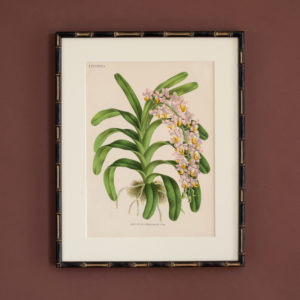
Linden Botanicals, Aerides Reichenbachi,
£175 eachLinden Botanicals, Aerides Reichenbachi,
L’Illustration Horticole, was a monthly horticultural review, founded in 1854 in Ghent, Belgium, by Ambroise Verschaffelt, a nurseryman who specialised in new plant introductions from South America. The lavish illustrations were produced by some of the very best botanical artists and lithographers – A. Goosens, P. De Pannemaeker and J. Goffart. The L’Illustration Horticole although founded by Jean Jules Linden (1817 – 1898) became a collaborative effort of many great horticulturists and field botanists of the day. Jean Linden in his own right was a renowned orchid grower and collector. Each monthly edition featured chromolithograph of botanical prints. Plants such as orchids, camellias, roses and leafy plants such as ferns and palm trees were represented. The magazine’s scope included pictures, descriptions, the history and culture of “the most remarkable plants,” new introductions, horticultural history, botanical expeditions, and accounts of the major expositions and of new works on botany and horticulture as well as garden descriptions and layouts.£175 each -
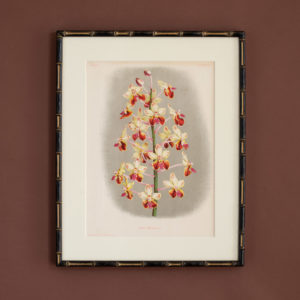
Linden Botanicals, Vanda Superba,
£175 eachLinden Botanicals, Vanda Superba,
L’Illustration Horticole, was a monthly horticultural review, founded in 1854 in Ghent, Belgium, by Ambroise Verschaffelt, a nurseryman who specialised in new plant introductions from South America. The lavish illustrations were produced by some of the very best botanical artists and lithographers – A. Goosens, P. De Pannemaeker and J. Goffart. The L’Illustration Horticole although founded by Jean Jules Linden (1817 – 1898) became a collaborative effort of many great horticulturists and field botanists of the day. Jean Linden in his own right was a renowned orchid grower and collector. Each monthly edition featured chromolithograph of botanical prints. Plants such as orchids, camellias, roses and leafy plants such as ferns and palm trees were represented. The magazine’s scope included pictures, descriptions, the history and culture of “the most remarkable plants,” new introductions, horticultural history, botanical expeditions, and accounts of the major expositions and of new works on botany and horticulture as well as garden descriptions and layouts.£175 each -
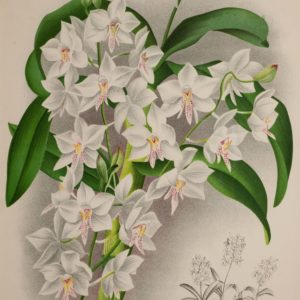
Linden Botanicals, Diacrium Bicornutum,
£175 eachLinden Botanicals, Diacrium Bicornutum,
L’Illustration Horticole, was a monthly horticultural review, founded in 1854 in Ghent, Belgium, by Ambroise Verschaffelt, a nurseryman who specialised in new plant introductions from South America. The lavish illustrations were produced by some of the very best botanical artists and lithographers – A. Goosens, P. De Pannemaeker and J. Goffart. The L’Illustration Horticole although founded by Jean Jules Linden (1817 – 1898) became a collaborative effort of many great horticulturists and field botanists of the day. Jean Linden in his own right was a renowned orchid grower and collector. Each monthly edition featured chromolithograph of botanical prints. Plants such as orchids, camellias, roses and leafy plants such as ferns and palm trees were represented. The magazine’s scope included pictures, descriptions, the history and culture of “the most remarkable plants,” new introductions, horticultural history, botanical expeditions, and accounts of the major expositions and of new works on botany and horticulture as well as garden descriptions and layouts.£175 each -
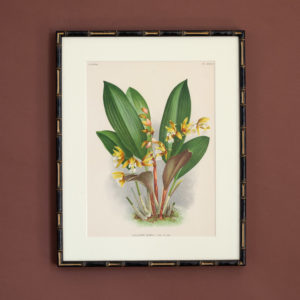
Linden Botanicals, Coelogyne Lurida,
£175 eachLinden Botanicals, Coelogyne Lurida,
L’Illustration Horticole, was a monthly horticultural review, founded in 1854 in Ghent, Belgium, by Ambroise Verschaffelt, a nurseryman who specialised in new plant introductions from South America. The lavish illustrations were produced by some of the very best botanical artists and lithographers – A. Goosens, P. De Pannemaeker and J. Goffart. The L’Illustration Horticole although founded by Jean Jules Linden (1817 – 1898) became a collaborative effort of many great horticulturists and field botanists of the day. Jean Linden in his own right was a renowned orchid grower and collector. Each monthly edition featured chromolithograph of botanical prints. Plants such as orchids, camellias, roses and leafy plants such as ferns and palm trees were represented. The magazine’s scope included pictures, descriptions, the history and culture of “the most remarkable plants,” new introductions, horticultural history, botanical expeditions, and accounts of the major expositions and of new works on botany and horticulture as well as garden descriptions and layouts.£175 each -
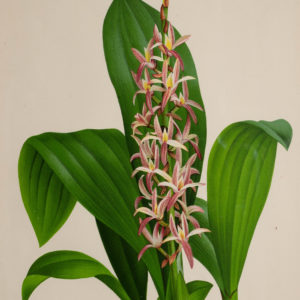
Linden Botanicals, Eria Striolata,
£175 eachLinden Botanicals, Eria Striolata,
L’Illustration Horticole, was a monthly horticultural review, founded in 1854 in Ghent, Belgium, by Ambroise Verschaffelt, a nurseryman who specialised in new plant introductions from South America. The lavish illustrations were produced by some of the very best botanical artists and lithographers – A. Goosens, P. De Pannemaeker and J. Goffart. The L’Illustration Horticole although founded by Jean Jules Linden (1817 – 1898) became a collaborative effort of many great horticulturists and field botanists of the day. Jean Linden in his own right was a renowned orchid grower and collector. Each monthly edition featured chromolithograph of botanical prints. Plants such as orchids, camellias, roses and leafy plants such as ferns and palm trees were represented. The magazine’s scope included pictures, descriptions, the history and culture of “the most remarkable plants,” new introductions, horticultural history, botanical expeditions, and accounts of the major expositions and of new works on botany and horticulture as well as garden descriptions and layouts.£175 each -
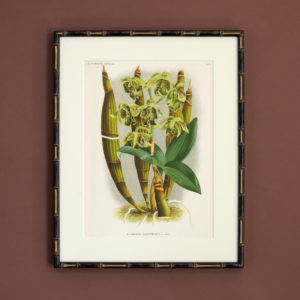
Linden Botanicals, Dendiobium Macrophyllum,
£175 eachLinden Botanicals, Dendiobium Macrophyllum,
L’Illustration Horticole, was a monthly horticultural review, founded in 1854 in Ghent, Belgium, by Ambroise Verschaffelt, a nurseryman who specialised in new plant introductions from South America. The lavish illustrations were produced by some of the very best botanical artists and lithographers – A. Goosens, P. De Pannemaeker and J. Goffart. The L’Illustration Horticole although founded by Jean Jules Linden (1817 – 1898) became a collaborative effort of many great horticulturists and field botanists of the day. Jean Linden in his own right was a renowned orchid grower and collector. Each monthly edition featured chromolithograph of botanical prints. Plants such as orchids, camellias, roses and leafy plants such as ferns and palm trees were represented. The magazine’s scope included pictures, descriptions, the history and culture of “the most remarkable plants,” new introductions, horticultural history, botanical expeditions, and accounts of the major expositions and of new works on botany and horticulture as well as garden descriptions and layouts.£175 each -
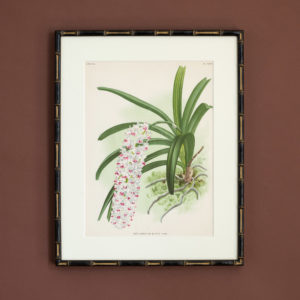
Linden Botanicals, Rhynchostylis Retusa,
£175 eachLinden Botanicals, Rhynchostylis Retusa,
L’Illustration Horticole, was a monthly horticultural review, founded in 1854 in Ghent, Belgium, by Ambroise Verschaffelt, a nurseryman who specialised in new plant introductions from South America. The lavish illustrations were produced by some of the very best botanical artists and lithographers – A. Goosens, P. De Pannemaeker and J. Goffart. The L’Illustration Horticole although founded by Jean Jules Linden (1817 – 1898) became a collaborative effort of many great horticulturists and field botanists of the day. Jean Linden in his own right was a renowned orchid grower and collector. Each monthly edition featured chromolithograph of botanical prints. Plants such as orchids, camellias, roses and leafy plants such as ferns and palm trees were represented. The magazine’s scope included pictures, descriptions, the history and culture of “the most remarkable plants,” new introductions, horticultural history, botanical expeditions, and accounts of the major expositions and of new works on botany and horticulture as well as garden descriptions and layouts.£175 each -
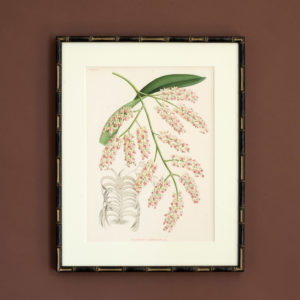
Linden Botanicals, Cleisostoma Crassifolium,
£175 eachLinden Botanicals, Cleisostoma Crassifolium,
L’Illustration Horticole, was a monthly horticultural review, founded in 1854 in Ghent, Belgium, by Ambroise Verschaffelt, a nurseryman who specialised in new plant introductions from South America. The lavish illustrations were produced by some of the very best botanical artists and lithographers – A. Goosens, P. De Pannemaeker and J. Goffart. The L’Illustration Horticole although founded by Jean Jules Linden (1817 – 1898) became a collaborative effort of many great horticulturists and field botanists of the day. Jean Linden in his own right was a renowned orchid grower and collector. Each monthly edition featured chromolithograph of botanical prints. Plants such as orchids, camellias, roses and leafy plants such as ferns and palm trees were represented. The magazine’s scope included pictures, descriptions, the history and culture of “the most remarkable plants,” new introductions, horticultural history, botanical expeditions, and accounts of the major expositions and of new works on botany and horticulture as well as garden descriptions and layouts.£175 each -
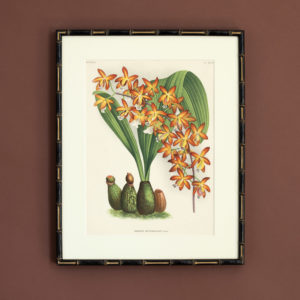
Linden Botanicals, Eriopsis Rutidobulbon,
£175 eachLinden Botanicals, Eriopsis Rutidobulbon,
L’Illustration Horticole, was a monthly horticultural review, founded in 1854 in Ghent, Belgium, by Ambroise Verschaffelt, a nurseryman who specialised in new plant introductions from South America. The lavish illustrations were produced by some of the very best botanical artists and lithographers – A. Goosens, P. De Pannemaeker and J. Goffart. The L’Illustration Horticole although founded by Jean Jules Linden (1817 – 1898) became a collaborative effort of many great horticulturists and field botanists of the day. Jean Linden in his own right was a renowned orchid grower and collector. Each monthly edition featured chromolithograph of botanical prints. Plants such as orchids, camellias, roses and leafy plants such as ferns and palm trees were represented. The magazine’s scope included pictures, descriptions, the history and culture of “the most remarkable plants,” new introductions, horticultural history, botanical expeditions, and accounts of the major expositions and of new works on botany and horticulture as well as garden descriptions and layouts.£175 each -
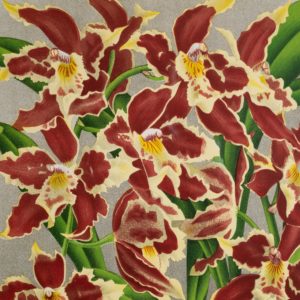
Linden Botanicals, Odontoglossum Crispum,
£175 eachLinden Botanicals, Odontoglossum Crispum,
L’Illustration Horticole, was a monthly horticultural review, founded in 1854 in Ghent, Belgium, by Ambroise Verschaffelt, a nurseryman who specialised in new plant introductions from South America. The lavish illustrations were produced by some of the very best botanical artists and lithographers – A. Goosens, P. De Pannemaeker and J. Goffart. The L’Illustration Horticole although founded by Jean Jules Linden (1817 – 1898) became a collaborative effort of many great horticulturists and field botanists of the day. Jean Linden in his own right was a renowned orchid grower and collector. Each monthly edition featured chromolithograph of botanical prints. Plants such as orchids, camellias, roses and leafy plants such as ferns and palm trees were represented. The magazine’s scope included pictures, descriptions, the history and culture of “the most remarkable plants,” new introductions, horticultural history, botanical expeditions, and accounts of the major expositions and of new works on botany and horticulture as well as garden descriptions and layouts.£175 each -
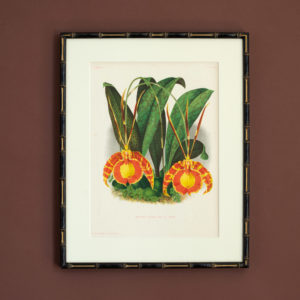
Linden Botanicals, Oncidium Papilio,
£175 eachLinden Botanicals, Oncidium Papilio,
L’Illustration Horticole, was a monthly horticultural review, founded in 1854 in Ghent, Belgium, by Ambroise Verschaffelt, a nurseryman who specialised in new plant introductions from South America. The lavish illustrations were produced by some of the very best botanical artists and lithographers – A. Goosens, P. De Pannemaeker and J. Goffart. The L’Illustration Horticole although founded by Jean Jules Linden (1817 – 1898) became a collaborative effort of many great horticulturists and field botanists of the day. Jean Linden in his own right was a renowned orchid grower and collector. Each monthly edition featured chromolithograph of botanical prints. Plants such as orchids, camellias, roses and leafy plants such as ferns and palm trees were represented. The magazine’s scope included pictures, descriptions, the history and culture of “the most remarkable plants,” new introductions, horticultural history, botanical expeditions, and accounts of the major expositions and of new works on botany and horticulture as well as garden descriptions and layouts.£175 each -
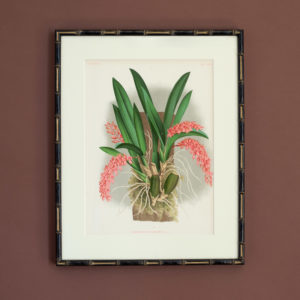
Linden Botanicals, Rodriguezia Bungerothi,
£175 eachLinden Botanicals, Rodriguezia Bungerothi,
L’Illustration Horticole, was a monthly horticultural review, founded in 1854 in Ghent, Belgium, by Ambroise Verschaffelt, a nurseryman who specialised in new plant introductions from South America. The lavish illustrations were produced by some of the very best botanical artists and lithographers – A. Goosens, P. De Pannemaeker and J. Goffart. The L’Illustration Horticole although founded by Jean Jules Linden (1817 – 1898) became a collaborative effort of many great horticulturists and field botanists of the day. Jean Linden in his own right was a renowned orchid grower and collector. Each monthly edition featured chromolithograph of botanical prints. Plants such as orchids, camellias, roses and leafy plants such as ferns and palm trees were represented. The magazine’s scope included pictures, descriptions, the history and culture of “the most remarkable plants,” new introductions, horticultural history, botanical expeditions, and accounts of the major expositions and of new works on botany and horticulture as well as garden descriptions and layouts.£175 each -
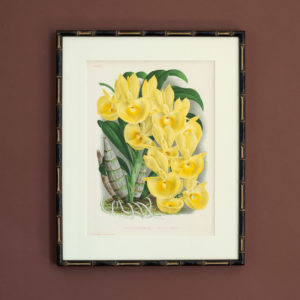
Linden Botanicals, Catasetum Bungerothi,
£175 eachLinden Botanicals, Catasetum Bungerothi,
L’Illustration Horticole, was a monthly horticultural review, founded in 1854 in Ghent, Belgium, by Ambroise Verschaffelt, a nurseryman who specialised in new plant introductions from South America. The lavish illustrations were produced by some of the very best botanical artists and lithographers – A. Goosens, P. De Pannemaeker and J. Goffart. The L’Illustration Horticole although founded by Jean Jules Linden (1817 – 1898) became a collaborative effort of many great horticulturists and field botanists of the day. Jean Linden in his own right was a renowned orchid grower and collector. Each monthly edition featured chromolithograph of botanical prints. Plants such as orchids, camellias, roses and leafy plants such as ferns and palm trees were represented. The magazine’s scope included pictures, descriptions, the history and culture of “the most remarkable plants,” new introductions, horticultural history, botanical expeditions, and accounts of the major expositions and of new works on botany and horticulture as well as garden descriptions and layouts.£175 each -
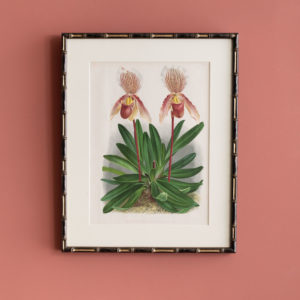
Linden Botanicals,
£175 eachLinden Botanicals,
L’Illustration Horticole, was a monthly horticultural review, founded in 1854 in Ghent, Belgium, by Ambroise Verschaffelt, a nurseryman who specialised in new plant introductions from South America. The lavish illustrations were produced by some of the very best botanical artists and lithographers – A. Goosens, P. De Pannemaeker and J. Goffart. The L’Illustration Horticole although founded by Jean Jules Linden (1817 – 1898) became a collaborative effort of many great horticulturists and field botanists of the day. Jean Linden in his own right was a renowned orchid grower and collector. Each monthly edition featured chromolithograph of botanical prints. Plants such as orchids, camellias, roses and leafy plants such as ferns and palm trees were represented. The magazine’s scope included pictures, descriptions, the history and culture of “the most remarkable plants,” new introductions, horticultural history, botanical expeditions, and accounts of the major expositions and of new works on botany and horticulture as well as garden descriptions and layouts.£175 each
Featured Items
-
No records found
